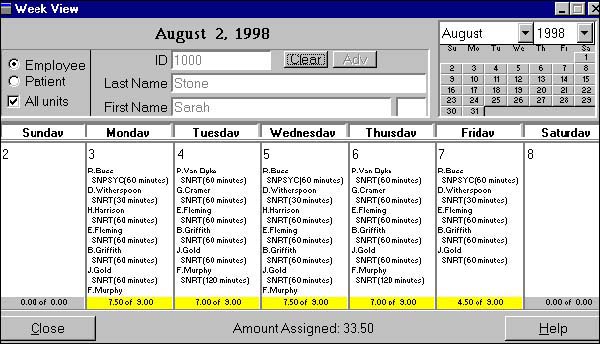Wireless Technology Helps Home Health Nurses Deliver Patient Care

Up-to-date information
Cost savings
Visits through video
SUN Home Health Services, a nonprofit visiting nurse association, plans to use cellular technology to help deliver healthcare to patients in Pennsylvania's rural areas. SUN's home care and hospice nurses will use laptop computers with wireless modems to communicate over the Internet with other members of the patient care team.
A laptop equipped with an AirCard wireless modem will allow home care and hospice nurses to review their schedules, patient histories and care plans without making trips to branch offices. Nurses will be able to access and enter information over the Internet from their cars, homes, or a patient's home. The AirCard, consisting of a modem and a cellular transceiver, eliminates the need for a cellular phone and special cord to connect it to the modem card.
A year ago, SUN (Northumberland, PA) installed WTS/Citrix Metaframe hardware and Delta Health Systems' Novius (a company trademark) Home Care information system to exchange data with its staff of more than 250 in 11 offices throughout Central Pennsylvania. SUN plans to add wireless capability in the next six months, according to Steve Richard, the company's chief financial officer.
WTS/Citrix Metaframe technology can be used with standard, off-the-shelf browsers on various personal computers, supporting Internet and intranet access. Novius is a Windows-based, client-server system. Features include:
- Billing
- Reimbursement
- Referral intake
- Scheduling
- Reporting
- Financial applications
- Medications database

Delta (Altoona, PA) provides customers with one- to two-week training sessions in the operation of the Novius system, according to Ginny Brady, the company's public relations communications manager.
Up-to-date information
Wireless communication will not only be a boon to home care field personnel but also provide nurses at SUN's Health Information and Referral Center with current patient information at any time. The center is open 24 hours a day to take referrals, arrange admissions, contact on-call nurses and answer questions from physicians and patients.
"Now, most communication is done once a day after the staff has seen all their patients," Richard says. "Once we have cellular access to the Internet, we'll be able to obtain data like billing and clinical information as it comes in."
Cost savings
SUN's new technology is saving the company money in a number of ways, Richard says. "It has allowed us to be more efficient with fewer people and to have more data available at all times to people in the organization who need it."
The Novius system allows software updates to the main server, saving the cost of individual updates on computers in the field. In addition, the Internet is less expensive to use than a dedicated circuit, although the company is examining its bandwidth needs and may require a transmission mode with greater capability in its larger offices.
"Before installing Novius Home Care, our monthly cost to connect our branch offices to our network was $3,425," says Richard. "With Internet access, we've reduced costs to as low as $400 a month. That's about a 90 percent reduction, if dial-up Internet access is adequate."
SUN's technology is funded in part by a $300,000 grant from the United States Department of Agriculture's rural telecommunications program. Pennsylvania has the largest rural elderly population in the United States, says USDA Rural Development State Director Cheryl Cook, and the purpose of the government program is to help seniors stay healthy and continue to live at home.
Visits through video
A third phase of the project, to take place as the laptop project gets under way, involves adding telemedicine units to the Health Information and Referral Center. From the center, a nurse will be able to connect via phone lines using a video monitor in a patient's home and assess vital signs, even wounds, while seeing and talking with the patient. Although telemedicine isn't yet a component of the Novius system, Brady says it is a focus of Delta's research and development.
Julie Barton Miller, who lives in North Stonington, CT, is a freelance writer with extensive experience covering health and medical topics.
